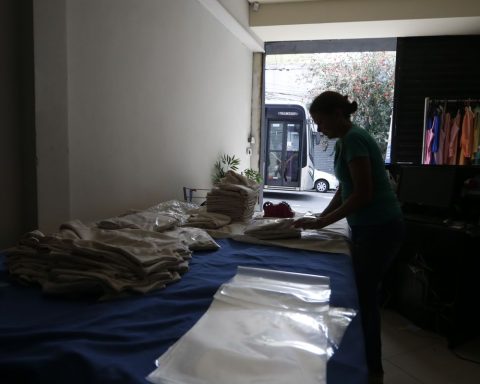The National Institute of Educational Studies and Research Anísio Teixeira (Inep), linked to the Ministry of Education (MEC), published in Official Gazette of the Union (DOU) this Monday (9) to final list of those approved in the sub judice condition in the National Exam for the Revalidation of Medical Diplomas Issued by Foreign Higher Education Institutions (Revalidated).
The results of candidates who have a court injunction correspond to the second stage of the first edition of Revalida in 2024. The results of the exams have already been released to the 137 approved participants, via the Revalida System, on participant pagewith login and password for the federal government’s digital services portal, Gov.br.
Second edition
Next weekend, December 14th and 15th, Inep will apply the tests for the second stage of the second edition of Revalida. Doctors who graduate abroad – Brazilian or foreign – must obtain at least 66.148 points out of 100 in this stage that assesses the practical skills of candidates to pass the exam.
Participation in the second stage depends on approval in the first. This new phase is structured into a set of ten stations, which are covered over the two days of the exam.
Participants must perform specific tasks, which may include investigating clinical history, interpreting exams, formulating diagnostic hypotheses, demonstrating medical procedures, counseling patients or family members, among others.
Revalidate
The exam is aimed both at foreigners who graduated in medicine outside Brazil and at Brazilians who graduated in another country and want to practice their profession in the national territory and, therefore, need to revalidate their diploma in Brazil.
Revalida is applied by Inep, while revalidation is the responsibility of public higher education institutions that adhere to the exam. Revalida assesses the skills and competencies of doctors graduated from higher education institutions in other countries. The test covers the knowledge necessary for professional practice appropriate to the principles and needs of the Unified Health System (SUS).
The tests are divided into two stages (theoretical and practical), which address, in an interdisciplinary way, the five major areas of medicine: internal medicine, surgery, gynecology and obstetrics, pediatrics, and family and community medicine (public health).
The references are care in the context of primary, outpatient, hospital, urgent, emergency and community care, based on the National Curricular Guideline for the Medicine Course, associated regulations and professional legislation.

















